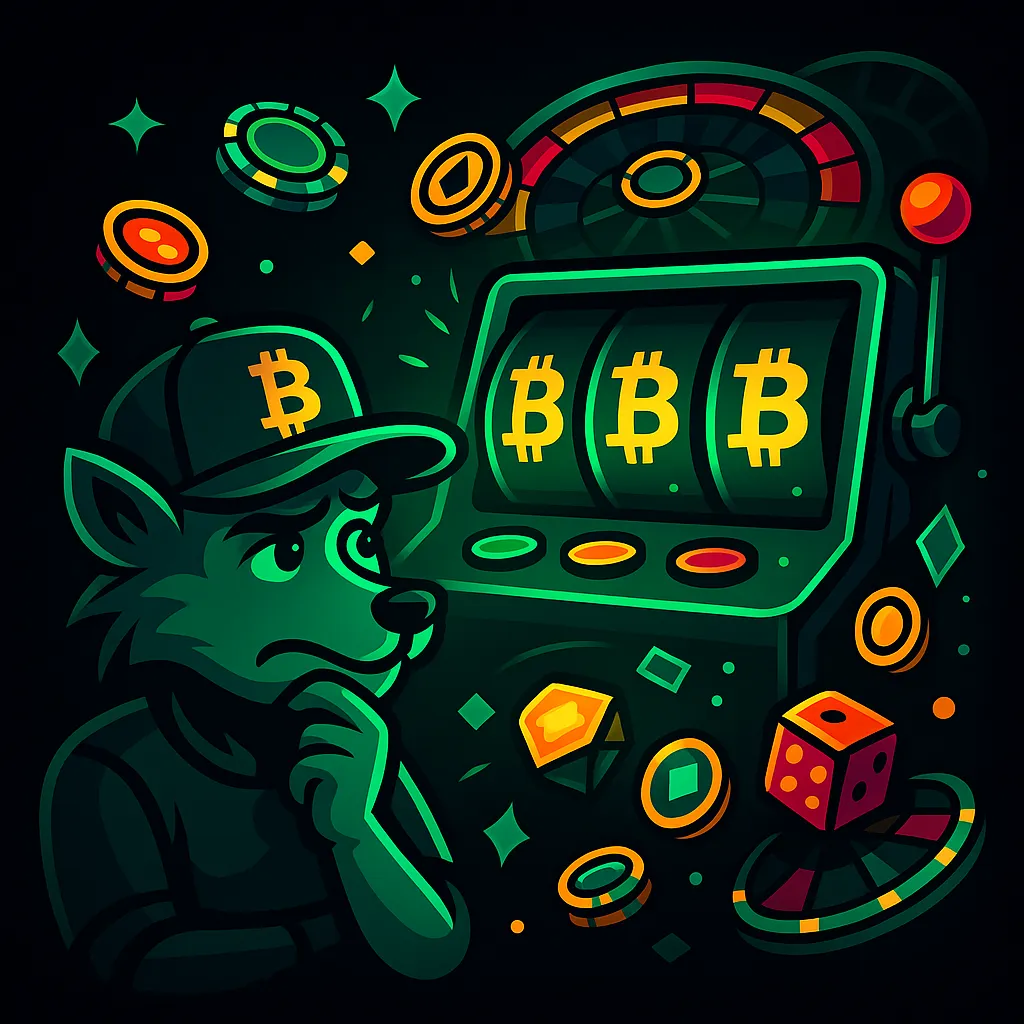Gambling has been around forever. From Roman dice games to Las Vegas slot machines to today’s massive online casinos, people have always loved risking money for a shot at winning big. But now there’s a new chapter: Web3 gambling.
Instead of credit cards, shady casinos, and “trust us” operators, we’re entering a world where blockchain, crypto wallets, and provably fair systems run the show.
So what is Web3 gambling, why is it exploding, and what makes it different from the online casinos you already know? Let’s break it down — simple, visual, and packed with real examples.
The Short Answer
Web3 gambling = online betting powered by blockchain and crypto.
Players connect with a wallet (like MetaMask or Phantom), deposit crypto (BTC, ETH, USDT, SOL), and place bets on games or sports. The difference? With Web3 casinos, you don’t hand over custody of your money to a middleman. Transactions, odds, and even randomness can be verified on the blockchain.
It’s the same thrill of the casino — but with more transparency, fewer restrictions, and a global community of degens.
How Gambling Evolved to Web3
- Traditional casinos (Web1): You walk into a physical venue, chips in hand, and hope the house isn’t cheating.
- Online casinos (Web2): Massive sites like Bet365 and PokerStars brought gambling to the internet — but they still control your funds, RNG (random number generator), and payouts.
- Web3 casinos (the new wave): Crypto-native platforms like Stake, Rollbit, and BC.Game let you bet with Bitcoin, ETH, or stablecoins. Some even run games fully on-chain, proving they’re not rigged.
👉 The shift isn’t just hype.
The global online gambling market is estimated at USD 78.66 billion in 2024, projected to reach USD 153.57 billion by 2030 with ~11 % CAGR
Why Web3 Gambling Is Different
- Custody: You hold funds in your own wallet, not locked inside the casino’s system.
- Transparency: Every transaction is visible on-chain. You can literally see the jackpot pool grow in real time.
- Provably fair: Casinos show you cryptographic proofs that games aren’t manipulated.
- Global access: No banks, no borders, no middlemen — just crypto. If you’ve got a phone and internet, you’re in.
- Faster payouts: Withdrawals are instant, not “wait 3–5 business days.”
Real-World Examples
- Stake.com → Probably the most famous hybrid Web3 casino. Sponsored Drake, watched by millions on Twitch before streaming bans. Handles billions in crypto bets every month.
- Rollbit → Known as the degen playground. Sports betting, slots, crypto futures, and NFT trading all in one.
- BC.Game → Sponsored Argentina’s national football team (yes, Messi’s team) — showing how Web3 gambling went mainstream.
- Polymarket → A pure on-chain prediction market. You can bet on U.S. elections, Bitcoin prices, or “Will ETH ETFs be approved this year?”
Web3 Gambling in Numbers
- Gambling market is estimated at USD 78.66 billion in 2024
- 50%+ of Stake.com’s traffic comes from outside Europe/US — mainly LATAM, Africa, and Asia where banking is messy but crypto is everywhere.
- 70% of Web3 gamblers in surveys say “provable fairness” was their #1 reason for switching from Web2 casinos.
- Memecoin mania: Rollbit once saw over $1B wagered in a single month during 2021’s bull run.
The Big Advantages
- Trustless play → You don’t rely on shady operators. Smart contracts + cryptography do the job.
- Borderless fam → Whether you’re in Lagos, São Paulo, or Manila, all you need is a wallet.
- New games → From prediction markets to NFT raffles, Web3 casinos create things you can’t do in Web2.
- Culture → Telegram groups, X Spaces, memes — Web3 gambling feels more like a community than a corporate casino.
But Keep It Real (The Risks)
We’re not here to sugarcoat, fam:
- Volatility: If you’re betting with ETH or SOL, the coin price itself might swing 20% in a week.
- Regulation: Web3 gambling is legal in some places, restricted in others. Rules vary country by country.
- Scams: Not every “on-chain casino” is legit. Rugs and fake sites exist. Always DYOR.
- Addiction: Just because it’s Web3 doesn’t mean you can’t get rekt gambling away your bag. Play responsibly.
Web3 Gambling vs Online Gambling
| Feature | Online Casino (Web2) | Web3 Casino |
|---|---|---|
| Custody | House holds your money | You hold it in your wallet |
| Transparency | Black box | On-chain, provable fairness |
| Payments | Cards, banks, PayPal | Crypto only (BTC, ETH, USDT, etc.) |
| Global access | Often geo-blocked | Anyone, anywhere with internet |
| Community | Customer accounts | Telegram, Discord, NFT fam |
The Future of Web3 Gambling
This isn’t just a niche anymore. We’re seeing:
- Sports sponsorships: Stake + Drake, BC.Game + Argentina’s national team.
- On-chain jackpots: Protocols like Parlay or Dope Chain experimenting with fully decentralized betting.
- Metaverse casinos: Projects testing VR poker rooms and NFT slot machines.
- Regulation clarity: U.S. Bitcoin ETFs opened the door; gambling is next in line for global frameworks.
As L2 chains (Arbitrum, Base, Optimism) get cheaper and Solana scales faster, full on-chain casinos could become mainstream — provably fair blackjack, decentralized jackpots, instant payouts, all without middlemen.
Final Word: The Next Evolution of Gambling
So what is Web3 gambling? It’s the natural next step — the casino meets blockchain. It’s risk and reward with transparency. It’s a global degen playground where you actually own your chips and can verify every roll of the dice.
Will you make “wife-changing money”? Maybe. Will you get rekt if you ape too hard? Definitely possible. That’s the game.
Welcome to the future of gambling. Welcome to Web3, fam. Wagmi. 🚀


